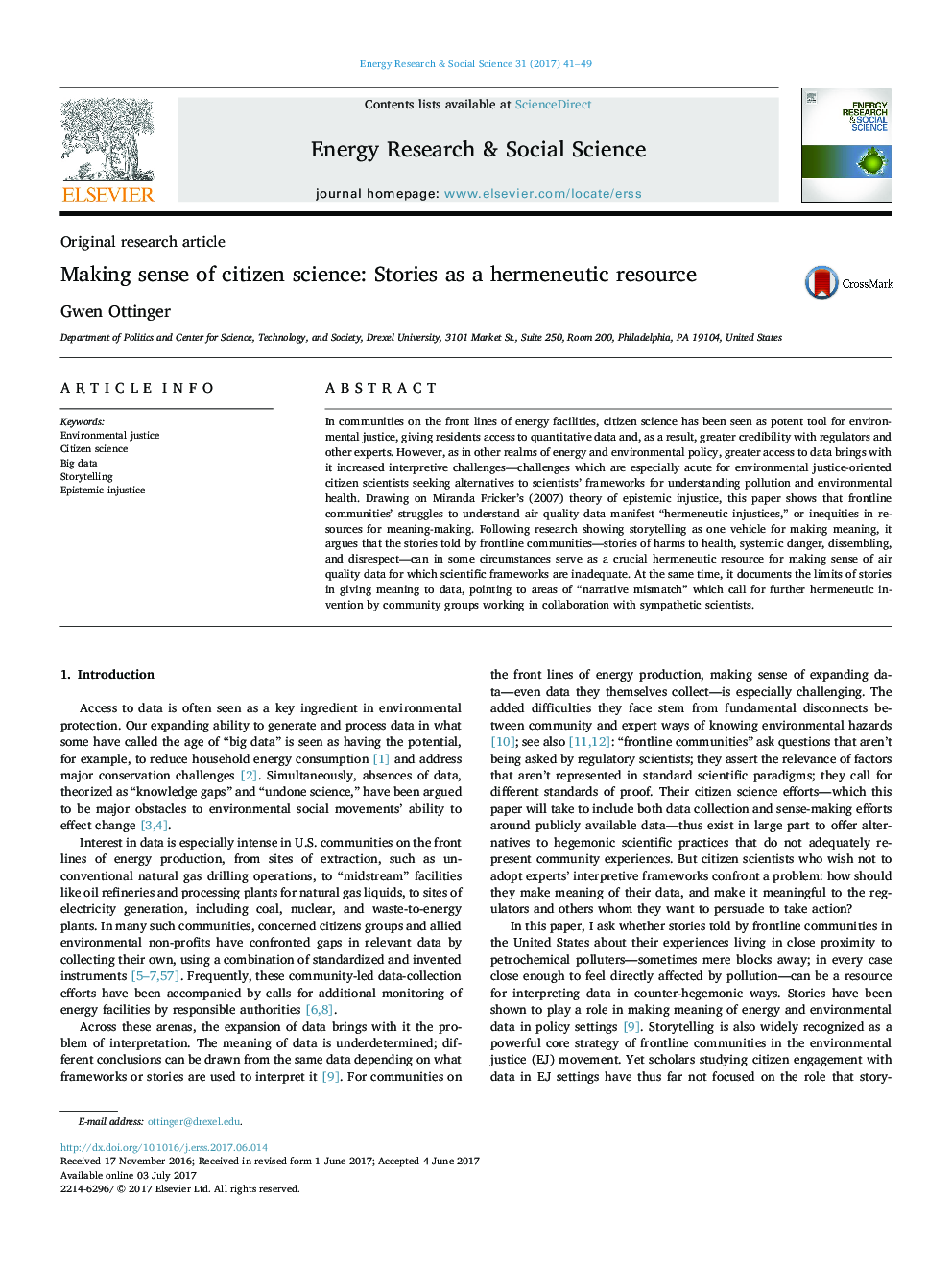| Article ID | Journal | Published Year | Pages | File Type |
|---|---|---|---|---|
| 6463832 | Energy Research & Social Science | 2017 | 9 Pages |
In communities on the front lines of energy facilities, citizen science has been seen as potent tool for environmental justice, giving residents access to quantitative data and, as a result, greater credibility with regulators and other experts. However, as in other realms of energy and environmental policy, greater access to data brings with it increased interpretive challenges-challenges which are especially acute for environmental justice-oriented citizen scientists seeking alternatives to scientists' frameworks for understanding pollution and environmental health. Drawing on Miranda Fricker's (2007) theory of epistemic injustice, this paper shows that frontline communities' struggles to understand air quality data manifest “hermeneutic injustices,” or inequities in resources for meaning-making. Following research showing storytelling as one vehicle for making meaning, it argues that the stories told by frontline communities-stories of harms to health, systemic danger, dissembling, and disrespect-can in some circumstances serve as a crucial hermeneutic resource for making sense of air quality data for which scientific frameworks are inadequate. At the same time, it documents the limits of stories in giving meaning to data, pointing to areas of “narrative mismatch” which call for further hermeneutic invention by community groups working in collaboration with sympathetic scientists.
